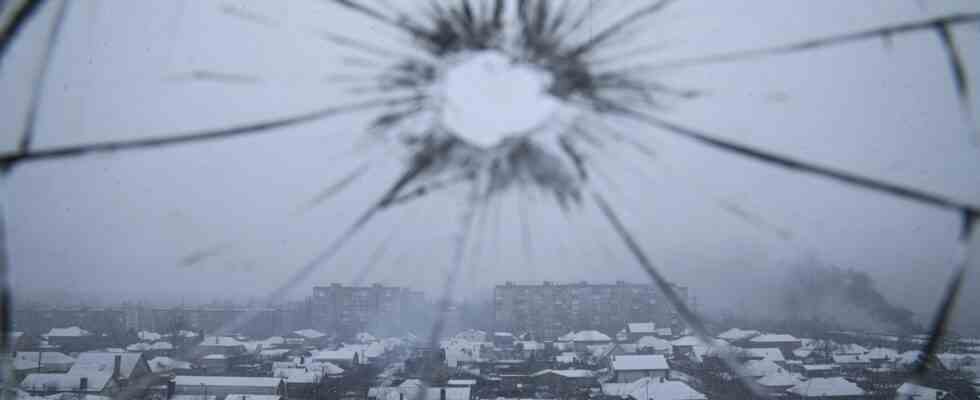Exclusive
Status: 03/23/2022 10:19 a.m
Hundreds of comments with similar content and anonymous profiles hyperactively tweeting about the war against Ukraine: Russia has apparently sent trolls into the digital battle again.
The video of a Ukrainian news channel was published on YouTube just a few minutes ago, but various comments with similar content immediately appear below it: Hunger will soon prevail in Ukraine, the country has already lost, the West has understood this, one says these comments. The Ukrainian people must “give up the war and build a new, normal, peaceful life in alliance with Belarus and Russia”.
The post comes from a profile that has only existed for five days – but has already published dozens of similar comments on the Ukrainian broadcaster’s channel.
increase insecurity and fear
professionals by the organization “Reset Tech”who analyzed communications on online platforms observed many similar profiles; According to the experts, there are many indications that these are Russian fake accounts. Analyst Anton Dek told tagesschau.de. Dek works for the Ukrainian company Trementum, which did an analysis of propaganda activities on the Internet for “Reset Tech”.
“It’s never possible to say with absolute certainty whether it’s a bot, a real user, or a hybrid,” says Dek. After all, “Kremlin propaganda works primarily with human click workers on the one hand – but is also carried out by shared by many Putin supporters who are not acting on behalf of the troll factories at all”.
If various characteristics come together, there is still a very high probability “of a paid Kremlin troll,” explains Dek: “For example, if copy-paste content is mainly distributed, the posting frequency is far above average, or the account only posts during normal core working hours.”
“Spreading Fear and Uncertainty”
One of the analyzed accounts has written more than 1,000 comments on the YouTube channel of the aforementioned Ukrainian news channel alone, others – who pretend to be young women, for example – have more than 100. Text blocks are often copied.
The experts from “Reset Tech” put in the analysis that tagesschau.de and the Washington Post: “Russian trolls are spreading fear and insecurity among the population, accusing the Ukrainian armed forces of shelling, calling for cooperation with the occupiers and calling for surrender.”
justifications for aggressive war
Alleged Russian propaganda profiles are not only appearing on Ukrainian media channels. However, when commenting on the BBC’s YouTube channel, the analysts observed a different strategy: Here, hyperactive accounts want to shift the direction of the debates in a pro-Russian direction.
So they try to justify the war of aggression against Ukraine because it is allegedly a “Nazi state” or because there is allegedly a genocide in the Donbass. These are both claims that Vladimir Putin used as a pretext for war.
Distract, disinform, disrupt
Trolls are profiles on the Internet that do not want to discuss or exchange information, but on the contrary try to manipulate or destroy debates. Various strategies are used, such as distracting from the topic, mass postings, false claims or personal attacks.
Such strategies have been known for years: in the 2017 federal election, for example, Russian profiles were active that wanted to cause confusion, such as research by tagesschau.de showed.
Russian fake profiles were active around various elections and referendums in Europe. Among other things, the University of Cardiff put a study on Russian activities in Europe – specifically examining the behavior of such profiles with regard to events in Ukraine. Russian fake profiles were created around the occupation of Crimea and after the downing of flight MH17.
After the annexation of Crimea, however, the profiles were primarily aimed at the Russian population – and called on them to go on vacation to the peninsula in order to boost the economy there.
Alleged local media
In order to increase the credibility of fake accounts abroad, profiles are constantly being set up posing as local news sites. In 2017, for example, Twitter accounts called HamburgBote, BerlinBote or DresdenBote appeared in Germany.
Although these hardly reached any relevant ranges, they were in turn quoted by the Russian state broadcaster RT Deutsch – as allegedly authentic sources from Germany. Investigations into the 2016 US election traced the accounts to a Russian troll factory and eventually blocked them.
Recently, alleged local media from Poland appeared on Instagram, which were registered to e-mail addresses in Russia.
Suddenly very active
A Twitter profile that is currently very active and is named after a former English local newspaper is also believed to be a fake Russian account.
There are several indications for this: There are hardly any references to the city from which the profile is said to be tweeting. Instead, the profile first commented in Filipino, then was not active at all for a long time – and became extremely active on anti-vaccination issues and the protests by truckers in Canada.
In December 2021, the account suddenly shared a message from Russian separatists from Donbass warning of Ukrainian chemical weapons; since the attack on Ukraine, the alleged British local site has been distributing masses of videos and photos purporting to show Ukrainian crimes or the successes of the Russian army. It are other examples of such accountswho claim to be from Scotland, for example, but spread Russian propaganda en masse.
Also Ukrainian propaganda
It is not only pro-Russian profiles and channels that are trying to influence the course of the war through propaganda and psychological operations. Many Ukrainian accounts also spread alleged heroic stories and unsubstantiated reports of successful counter-offensives in order to boost morale and resilience among the population.
However, Russia has justified its entire war of aggression with unsubstantiated claims and lies, just as the Kremlin has been using targeted disinformation as a strategy for years to implement Putin’s imperialist policies – by any means necessary.

